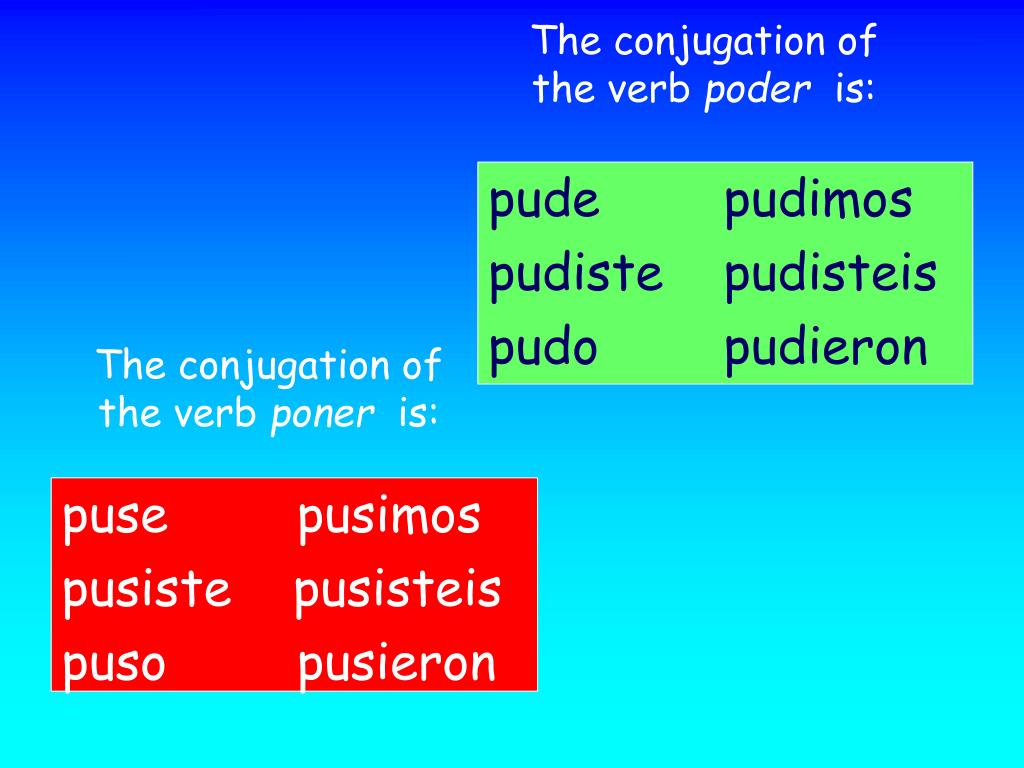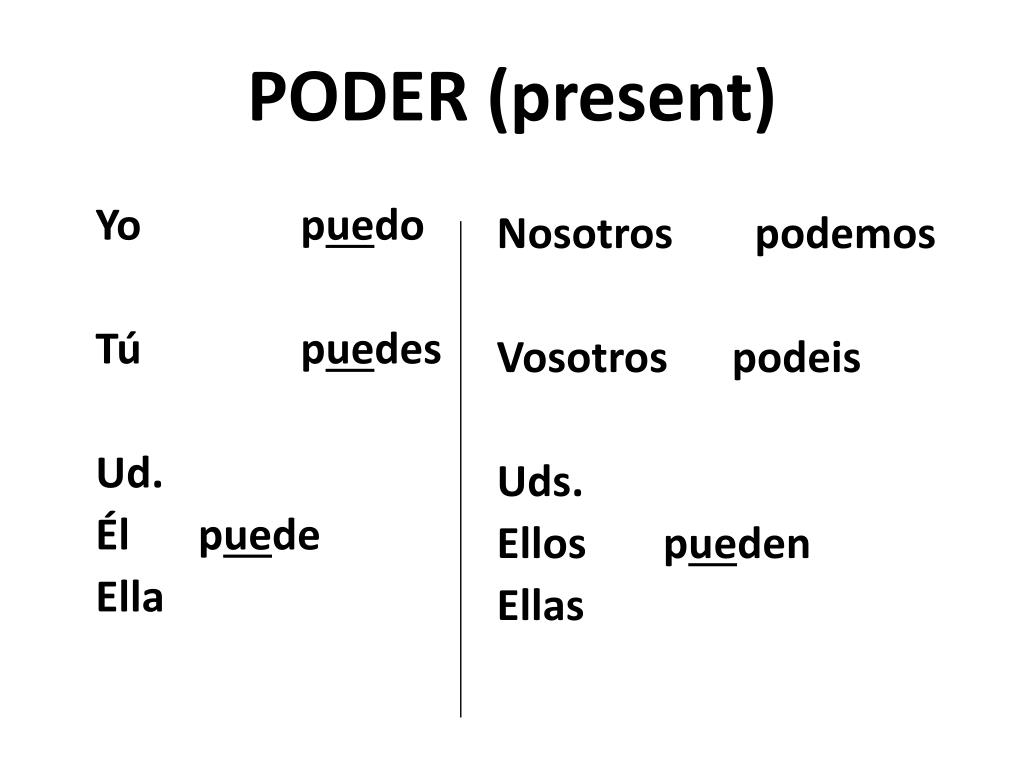

The Spanish present perfect subjunctive is formed with the structure haber (present subjunctive form) + past participle (podido, in this case). Here is a sentence example: La verdad, no creo que pueda ir.

Conjugate poder to the Spanish present subjunctive to express uncertainty, to wish or request someone to be able to do something. However, this spelling change is not applied to ‘nosotros’ and ‘vosotros’. Poder subjunctive conjugations have an O to UE stem change. In the sections below, you’ll find poder conjugation charts for the most common subjunctive tenses. The subjunctive mood in Spanish is used to talk about wishes, requests, suggestions, expectations, doubts, or hypothetical situations. For example: Sara está pudiendo arreglar la tele. Use progressive tenses to express that someone is being able to do something at the moment of speaking. The Spanish progressive tenses are formed with estar conjugated + pudiendo ( present participle). These poder conjugations also allow you to hypothesize about what someone was able to do.įor example: No habría podido hacer esto sin ti. When conjugated to the Spanish conditional perfect tense, poder refers to the things people would have been able to do if a past circumstance had been met. No sé si Juan ya habrá podido hablar con Lucy. These forms are also used to refer to the things people might have been able to do. The future perfect tense of poder is used to talk about the activities someone will be able to do by or before a certain moment in the future. Pensé que ya habías podido abrir la puerta. With this tense, poder communicates that someone had been able to do something before another past action. The Spanish past perfect indicative tense is formed with haber (imperfect form) + past participle form of ‘poder’. For instance: No hemos podido arreglar la computadora. You can use these conjugations to refer to the activities people have or haven’t been able to do. Haber in the present tense + podido ( past participle) is the structure you need to follow to form the Spanish present perfect. You can also use these forms to ask things politely in Spanish.įor example: ¿Podrías decirme dónde están los baños? Person The conditional conjugations of ‘poder’ allow you to talk about the things people would be able to do. To conjugate poder to the conditional tense, you must use the irregular stem podr. Conjugate poder to the future simple to talk about the activities people will be able to do at some moment in the future. To form this tense, you must use the stem podr. Poder future tense conjugations are irregular. For instance: ¿Vas a poder ir mañana? Person These conjugations allow you to express that a person is going to be able to do something very soon in the future. The Spanish immediate or near future is formed with ir (present tense) + a + poder. You can also use these forms when it’s unclear when someone was able to do something.įor instance: Yo nunca podía jugar con mi hermano. Use poder imperfect conjugations to talk about the things people were or weren’t able to do for an extended time in the past. In the imperfect indicative tense, poder is a regular verb. For example: ¿Pudiste hablar con Lara? Person Use the preterite tense to conjugate poder to express that a person was or wasn’t able to do something. You can see these changes in the conjugation chart below. Notice that the forms ‘yo’, ‘él’, ‘ella’, and ‘usted’ omit the accent mark in the preterite endings. Poder preterite conjugations are formed with the irregular stem pud. We use poder present conjugations to express what people can and cannot do. You can check this in the conjugation chart below.

The conjugations of poder in the present tense have an O to UE stem change for all pronouns except ‘nosotros’ and ‘vosotros’. Indicative Conjugations of Poder Present tense
#Preterite endings poder how to#
You can learn more about how to use this verb in the Uses & Meanings section.

Present Subjunctive: pued for all subject pronouns except ‘nosotros’ and vosotros’.ĭepending on the sentence, poder can be translated as ‘to be able to’ or ‘can’.Present Indicative: puedfor all subject pronouns except ‘nosotros’ and ‘vosotros’.Imperfect Subjunctive: pudie for all subject pronouns.Future & Conditional: podr for all subject pronouns.Preterite: pudfor all subject pronouns.


 0 kommentar(er)
0 kommentar(er)
